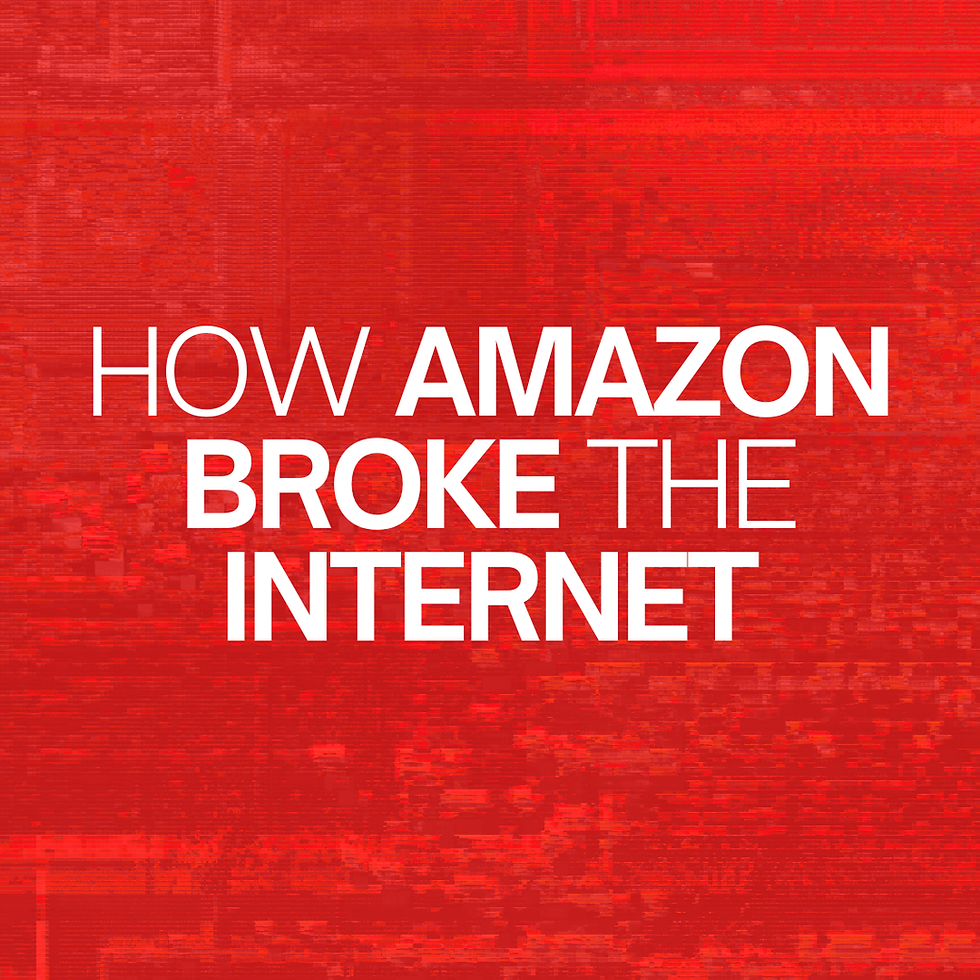The Dark Side of AI: How Unchecked Capitalism Threatens Human Society
- Lucy Edo

- Dec 30, 2024
- 4 min read

In 2025, artificial intelligence has become deeply woven into the fabric of American society. While tech executives promise a future of unprecedented convenience and opportunity, a darker reality is emerging: AI technology, combined with unrestricted capitalism, threatens to create unprecedented levels of social and economic inequality.
For those living in the United States without substantial financial resources, the transformation happening around us isn't just challenging – it's potentially catastrophic. To understand why, we must examine how modern technological inequality builds upon historical patterns of exploitation in American capitalism.
The foundation of American capitalism was built upon systematic exploitation, most notably through the institution of slavery. This system extracted labor not only from enslaved Africans but also from numerous other populations, including indigenous peoples, indentured servants from Europe, and Asian laborers. This pattern of exploitation has taken many forms throughout our nation's history.
The legacy of this uncompensated labor – estimated at trillions in today's dollars – continues to shape our economic system. While symbolic gestures of recognition through monuments and ceremonies have been made, meaningful financial restitution remains largely unaddressed. This historical context is crucial for understanding how modern technological developments may perpetuate and amplify existing inequalities.
Today, we stand at a critical juncture with the widespread deployment of artificial intelligence systems. While AI isn't new to technical experts – its development can be traced back to the early 2000s – its current consumer-facing applications represent just the tip of a much larger iceberg. Scientists, government agencies, and corporations have been developing and refining AI technologies for decades, but the public is only now beginning to glimpse their true scope and potential impact.
Consumer AI applications – content creation, technical assistance, personal and professional development tools – may seem benign on the surface. Tech companies and their leaders consistently promote these technologies as purely beneficial innovations that will streamline our lives, preserve our jobs, and reduce living costs. However, as someone with over a decade of experience in marketing and digital strategy, I see concerning patterns beneath the optimistic corporate messaging.
Consider OpenAI, which develops ChatGPT. While established with the stated mission of benefiting humanity, the organization's evolution tells a revealing story about how capitalist forces can transform even the most idealistic ventures. The list of initial investors reads like a who's who of corporate power: Microsoft and Nvidia (each valued at over $1 trillion), Reid Hoffman, Founder of LinkedIn (acquired by Microsoft for $26.2 billion), Khosla Ventures, Founders Fund, SoftBank, and Elon Musk, among others. Together, these entities represent a concentration of wealth and influence unprecedented in human history.
OpenAI's trajectory from nonprofit to corporate giant exemplifies this transformation. Founded as a non-profit in 2015 with $137 million in donations, the organization restructured in 2019 to create a for-profit arm. This new entity quickly attracted $1 billion from Microsoft alone. By 2024, OpenAI's valuation had skyrocketed to $157 billion. While we must acknowledge the technical achievements – including reaching 300 million weekly users – we must also question the long-term societal costs of concentrating such powerful technology in the hands of a wealthy few.
The elitist nature of technology development isn't new – it's deeply rooted in historical patterns. From the 1940s-1960s, early computers like ENIAC and UNIVAC were accessible only to governments, wealthy institutions, and major corporations. During this period, discrimination against people of color, minorities, and women severely limited access to these revolutionary technologies. The subsequent Silicon Valley boom of the 1970s-1980s established a pattern that persists today: venture capital flowing primarily to founders from elite educational networks like Stanford and MIT.
While the 1990s Internet Revolution supposedly democratized information access, the underlying infrastructure remained controlled by corporate giants like Microsoft, Apple, and IBM. This pattern intensified during the Big Tech Era, as Google, Amazon, Apple, Microsoft, and Meta emerged as modern monopolies, wielding unprecedented influence over innovation, policy, and access. Their power extends beyond traditional corporate boundaries – former employees proudly display their Big Tech credentials like badges of nobility, knowing the social and professional capital these associations carry.
The current AI Gold Rush (2010s-present) has only amplified these disparities. AI development requires massive computational resources, data access, and specialized expertise – advantages that inherently favor wealthy corporations and individuals. The technology elite's influence now extends directly into government policy-making, exemplified by figures like Elon Musk advising President Donald Trump on technological matters.
While some democratizing forces exist – open-source tools like Python and GitHub, emerging innovation centers in countries like Nigeria, Brazil, and India – the fundamental power imbalance remains. The gap between the technology elite and the general public continues to widen, particularly in how AI systems are deployed to extract maximum profit from consumers.
Recent examples highlight this concerning trend:
Uber Technologies allegedly adjusts ride pricing based on users' phone models
Airlines experiment with AI-driven pricing that targets customers deemed willing to pay more
Property management companies use real-time AI to maximize rental prices
Grocery stores implement dynamic pricing systems that adjust costs based on consumer behavior
These practices reveal how AI, despite its potential benefits, is being weaponized to enhance profit extraction through increasingly sophisticated forms of price discrimination.
Sam Altman's vision of artificial general intelligence (AGI) benefiting all humanity may be genuine, but it exists within a capitalist framework that prioritizes unlimited profit over social good. Even the most benevolent technological innovations ultimately serve the interests of investors and elite stakeholders when filtered through this system.
The path forward requires collective action and critical engagement with rapidly evolving technologies. We must question not just how these tools function, but who controls them and to what ends. Without active resistance and reformation of our current system, the combination of unrestricted capitalism and advanced AI threatens to create levels of inequality that could fundamentally destabilize society.
Yet hope remains in collective awareness and action. By understanding these dynamics and working together across economic divides, we can push for more equitable deployment of AI technologies. The challenge ahead isn't just technological – it's a test of our ability to ensure that transformative innovations serve the many rather than enriching the few.



Comments